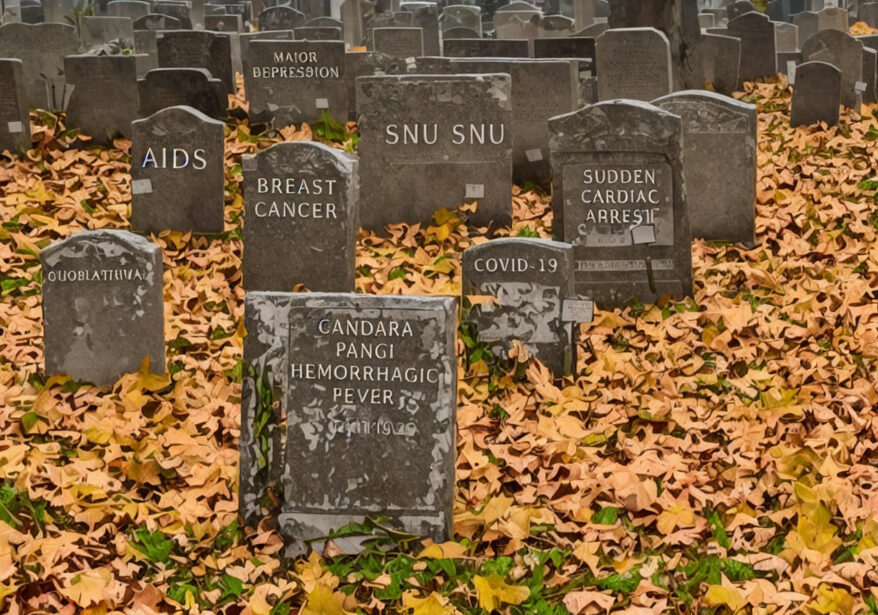We live in an age where people fear the improbable and ignore the obvious. Shark attacks, lightning strikes, plane crashes—these dominate our collective anxieties. Meanwhile, the true killers—heart disease, cancer, diabetes, addiction—quietly claim millions without making headlines. It’s time for a cultural shift, and it starts where life ends: with obituaries and gravestones that tell the truth.
The Case for Transparency
Why do we sanitize death in public records? A person dies, and the obituary says they “passed peacefully,” “went too soon,” or simply “is at rest.” The cause of death is omitted, as if acknowledging it would taint the memory.
But this secrecy does more harm than good. By hiding what actually kills us, we deny ourselves—and future generations—the chance to learn, reflect, and act. Imagine walking through a cemetery and seeing:
-
John Doe, 1950–2025. Died of heart failure linked to decades of untreated hypertension.
-
Jane Roe, 1987–2023. Lost to an aggressive form of breast cancer.
-
Mark Smith, 1999–2024. Suicide driven by untreated bipolar disorder.
Now compare that to the sea of empty euphemisms we usually get. Which version teaches, warns, and potentially saves lives?
Suicide: Name the Real Enemy
Suicide, in particular, deserves clarity. We should not simply label it as self-inflicted death and move on. We should name the conditions that led there, when known: major depression, PTSD, schizophrenia, severe substance use disorder. The tragedy is not the act itself but the illness that drove it.
By doing this, we destigmatize the disease while spotlighting the need for early intervention. People reading those gravestones might recognize symptoms in themselves or others—and seek help.
A Tool Against False Fears
If obituaries and gravestones carried real cause-of-death information, the public would see reality for what it is:
-
Heart disease and cancer dominate.
-
Diabetes, COPD, stroke, and Alzheimer’s are relentless.
-
Addiction and mental illness claim lives silently.
-
Shark attacks? Lightning? Terrorism? Rounding errors.
By broadcasting the truth, we help people calibrate their fears, focus their energies, and maybe take preventive health seriously.
Compassion Through Candor
This proposal isn’t about shaming the dead or their families. It’s about giving meaning to loss. Every life can become a lesson. Every death can fuel awareness. And maybe, just maybe, fewer people will have to follow in those footsteps.
Let the gravestone say what really happened. Let the obituary educate. The best memorial is one that helps the living stay alive.

